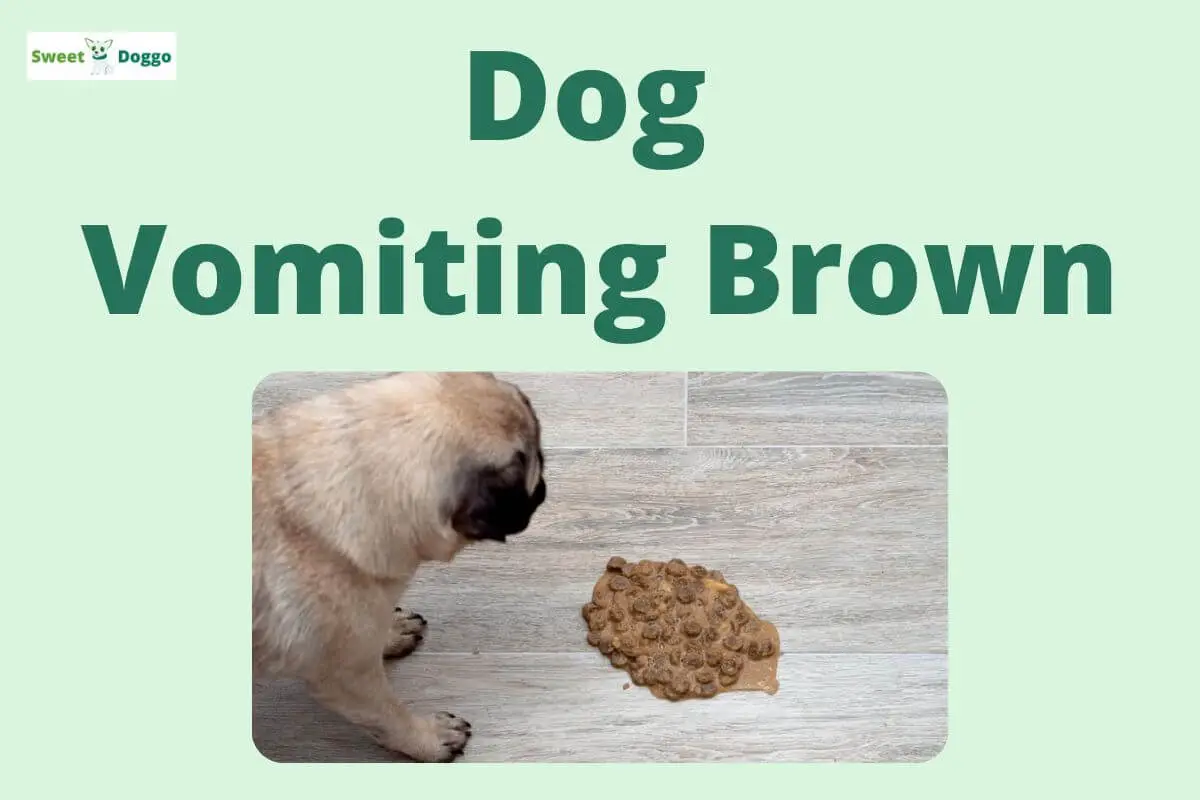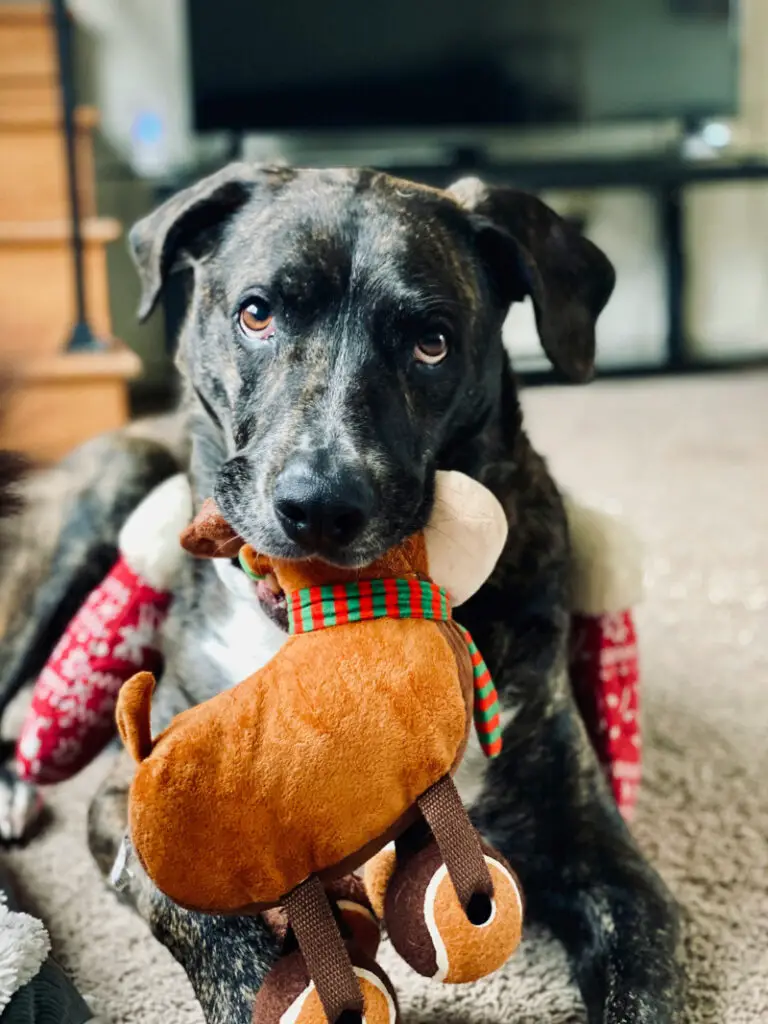If your dog vomits brown, it may simply be due to a certain food or matter that they have ingested. However, you should never overlook it, as sometimes this can indicate that something is wrong and that we need to go to the vet.
Keep reading below to learn about the main causes of brown vomit in dogs, what the accompanying signs may be, what to do when this symptom occurs, and what measures can help you prevent it.
Note. During the writing of this article, different specialized sources in veterinary health were consulted, including the PetMD digital magazine and official websites such as the VCA Hospital (Veterinary Centers of America) and the American Kennel Club (AKC).
Table of Contents
4 Common causes of brown vomit in dogs
In general, canine brown vomiting is considered to be caused by one of the following causes:
- Bleeding ulcers
- Bowel blockage
- Brown food or matter
- Stool ingestion
- Other sources of bleeding (tumors, gum disease, etc.)
Let’s look at each of them in more detail…
1. The dog has a bleeding ulcer
Bleeding stomach ulcers are not only responsible for the brown color in the vomit, but also induce nausea and the urge to vomit in the first place. Once the stomach acid has digested the blood from the irritated ulcer, the dog may expel a dark liquid, similar to coffee grounds.
Ulcers in dogs are usually due to the same problems that affect their owners, for example:
- Stress
- Bacterial or viral infections
- Ingestion of toxic substances
- Cancer
- Kidney disease
- Liver disease
- Abuse of aspirin or other NSAIDs (non-steroidal anti-inflammatory drugs)
In addition to frequent brown vomiting, other signs of a stomach ulcer can be dark black stools, weight loss, dehydration, and anemia. It is a condition that requires timely medical attention; otherwise, it can become life-threatening.
2. The dog has an intestinal blockage
Dark-colored vomit can indicate that something is blocking your pet’s intestines, especially if he’s a puppy. It could be a bone, a small toy, or a household object, such as a button or coin. In certain cases, the obstruction could also be due to the presence of abnormal growth.
Other symptoms to watch out for are loss of appetite, bloating, weakness, difficulty passing stool, and abdominal pain. Brown vomit that smells fouler than normal is a major warning sign for this condition. Suspecting intestinal obstruction, go immediately to the veterinarian; blockages can be fatal.
If the foreign item is found lodged in the esophagus, the dog will begin to show signs fairly quickly. It is common for them to lick their lips, swallow frequently, and regurgitate food shortly after eating.
3. The dog has eaten brown food or matter
Fortunately, many cases of brown vomit in dogs are not related to a health condition, but to the ingestion of certain dark brown foods or waste. Keep in mind that even though you’re pretty sure the food the dog ate is the cause, you’d better check for other unusual symptoms. If you suspect that your pet has eaten chocolate, go to the vet; he reminds you that chocolate is toxic to dogs.
4. The dog has ingested feces
Dark brown vomit, accompanied by a strong, unpleasant odor, may indicate that the pet has ingested feces. Although this often scares owners, it is extremely common for dogs to eat feces on an occasional basis; It’s considered pretty harmless behavior. The only cause for concern would be if they ate another animal’s poop contaminated with parasites or viruses.
Why does my dog eat feces? It has been reported that a dog may eat feces for multiple reasons, including the presence of parasites, a diet deficient in nutrients and calories, malabsorption syndrome, diabetes, thyroid problems, and some stress factors (isolation, restrictive confinement, , anxiety) or behavioral disorders (attention seeking, an inappropriate association of feces with real food).
5. Other reasons
Lastly, there are other conditions that also contribute to dogs vomiting a dark brown liquid. These include:
- Abnormal bleeding growths
- Gum disease
- Ingestion of rat poison
- Certain tick-borne diseases
- Parvovirus
- Hemorrhagic gastroenteritis
Always pay attention to possible signs of excessive bleeding in your dogs, such as pale gums, weakness, lethargy, and very black stools.
What to do if my dog vomiting brown liquid?
When this type of vomiting cannot be associated with the consumption of something brown, be it food, feces, or garbage, then it is best to go to the vet, especially if it is repeated several times. As we have already seen, there are cases in which the dog’s life may be in danger, which is why it is best to seek specialized care. Common causes such as bleeding ulcers and intestinal obstruction can be successfully resolved if timely treatment is applied.




